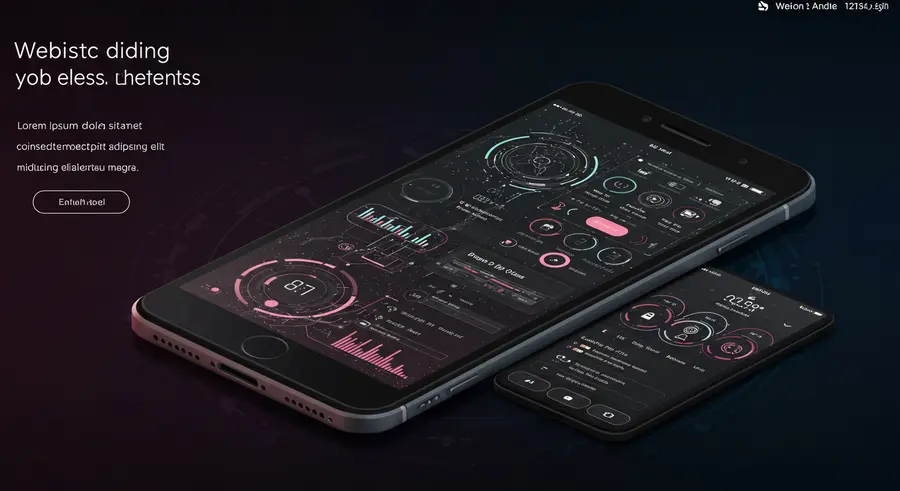Appearance

Welcome, tech innovators and web enthusiasts! 👋 Today, we're diving deep into a topic that's set to redefine the digital landscape: the powerful synergy between Progressive Web Apps (PWAs) and Artificial Intelligence (AI). Imagine web experiences that are not just fast and reliable, but also incredibly smart, adapting to your needs and preferences in real-time. This isn't science fiction; it's the near future, and PWAs powered by AI are leading the charge!
What are Progressive Web Apps (PWAs) Again? 🤔
Before we unleash the AI, let's quickly recap what makes PWAs so revolutionary. As discussed in our catalogue entry, "The Power of Progressive Web Apps (PWAs)", PWAs are essentially websites that feel like native mobile apps. They offer:
- Reliability: Thanks to Service Workers, they work offline or on flaky networks. 🌐
- Speed: Cached assets and optimized loading make them incredibly fast. ⚡
- Engagement: Push notifications and home screen installation keep users coming back. 📲
Now, let's infuse this robust foundation with the brainpower of AI!
The Perfect Pair: How AI Elevates PWAs 🚀
The integration of AI transforms PWAs from just "app-like websites" into truly intelligent, dynamic experiences. Here's how:
1. Hyper-Personalization & Predictive Experiences 🧠
AI algorithms can analyze user behavior, preferences, and historical data to deliver highly personalized content, recommendations, and even interfaces.
- Example: An e-commerce PWA could use AI to suggest products based on your past purchases and browsing habits, even predicting what you might need next! Think Amazon, but smarter and faster directly in your browser.
- Beyond Recommendations: AI can tailor the PWA's layout, themes, and feature visibility to each individual user, creating a uniquely intuitive experience.
2. Enhanced User Engagement with Smart Chatbots & Assistants 💬
Forget static FAQs! AI-powered chatbots and virtual assistants within PWAs can provide instant, intelligent support, answer complex queries, and guide users through processes.
- Example: A travel PWA could have an AI assistant that not only answers questions about flight times but also proactively suggests alternative routes during delays or finds hidden gems based on your interests.
- Proactive Assistance: These AI agents can anticipate user needs, offering help before it's explicitly requested, leading to a smoother and more satisfying user journey.
3. Optimized Performance & Resource Management ⚡
AI can intelligently manage resources, predict network conditions, and optimize caching strategies, making PWAs even faster and more efficient.
- Example: An AI-driven PWA might pre-fetch content it anticipates you'll need, or adjust image quality dynamically based on your network speed and device capabilities, all without you noticing.
- Smart Caching: Instead of generic caching rules, AI can learn user access patterns and prioritize caching of frequently used resources, leading to near-instant loading times.
4. Advanced Search & Discovery 🔍
AI can power sophisticated search functionalities that understand natural language queries, providing more accurate and relevant results.
- Example: A news PWA could use AI to summarize articles, categorize content based on sentiment, or allow users to search for complex topics using conversational language, not just keywords.
- Contextual Understanding: AI goes beyond simple keyword matching, understanding the intent behind a user's search query, leading to highly relevant search results.
5. Accessibility & Inclusivity 🌍
AI can greatly enhance the accessibility of PWAs, making them usable for a wider audience.
- Example: Real-time translation, voice-to-text input for users with motor impairments, or AI-driven image descriptions for visually impaired users can be seamlessly integrated.
- Adaptive Interfaces: AI can dynamically adjust font sizes, color contrasts, or even provide audio descriptions based on user accessibility settings or detected needs.
Challenges and Considerations 🤔
While the possibilities are exciting, integrating AI into PWAs also comes with its challenges:
- Data Privacy & Security: Handling user data for AI personalization requires robust security measures and transparent privacy policies.
- Computational Resources: Running complex AI models client-side can be demanding on device resources, requiring careful optimization.
- Ethical AI Development: Ensuring AI is fair, unbiased, and used responsibly is paramount.
The Road Ahead: What's Next? 🛣️
The future of PWAs with AI is incredibly bright. We can expect:
- Deeper Hardware Integration: PWAs will increasingly leverage device AI capabilities (e.g., on-device machine learning chips) for faster processing and enhanced features.
- Augmented Reality (AR) & Virtual Reality (VR) Integration: AI will facilitate more immersive experiences within PWAs, blurring the lines between the digital and physical worlds.
- Predictive UX: AI will proactively adapt the user experience based on context, location, and even emotional cues, creating truly adaptive interfaces.
The convergence of PWAs and AI is not just an incremental improvement; it's a paradigm shift. It empowers developers to build web applications that are not only performant and reliable but also intelligent, personal, and profoundly engaging. Get ready for a web that truly understands you! 🌟